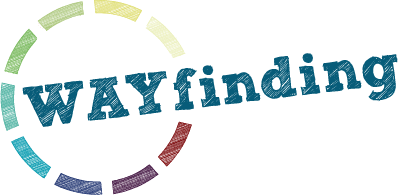| Ashley Parsons |
When I was a massage therapist, I would ask my clients, “Do you treat your car better than your body?” When we buy a car, the dealer tells us to make sure we use the right gasoline, change our oil regularly, keep coolant in the radiator and make sure to go to our regular maintenance inspections. What would happen if we didn’t? At best, our cars would stop running. Would we ever put anything other than gasoline in our engine? Not unless you wanted to replace your engine. Would you drive your car on a highway at 90 mph for days or weeks on end, without a break? Probably not. Yet, we (me included) do this everyday with our bodies. We go all day long, with no breaks, and we refuel with nutrient deficient foods. Unfortunately, our bodies don’t have a check engine light they can turn on, nor do we start smoking out of our ears or get a flat tire. Our bodies do start to get run down and not function at their optimal levels. Our “parts” get overworked and worn out.
When it comes to food, the things we put in our mouth have changed tremendously over the past 100 years. In fact, it has changed more in the past 50 years than in the 10,000 years before that. Why does this matter?
Our bodies understand nutrients. They take in chemical information – food (from nature) and water – and break it down into the nutrients they need to function properly. Trillions of bacteria help them do this, always trying to maintain a delicate balance of vitamins, minerals and nutrients. When we start inputting information our bodies don’t understand – for example, by eating processed foods that have artificial chemicals or consuming too much sugar – they don’t stop working; but instead, try to translate that information as best they can. Sometimes, this works well; sometimes, it doesn’t. Our bodies’ check engine lights come on but in the form of illnesses, inflammation, low energy and disease.
There is so much information swirling around us about what foods are good to eat and what foods we should avoid. It can feel overwhelming. The truth is each one of our bodies has unique needs. One person’s nourishment can be another person’s poison. The key is to learn to listen to your body. What would happen if you approached each meal as if it were a mini experiment? Could this help reduce some of the guilt and shame around eating? What if instead of good foods and bad foods, there were just foods that work well for you and foods that don’t?
Is there one thing your body is whispering or screaming at you to add or remove in order to feel better, more energized, more fulfilled? What if you try that one thing and see where it leads? Are you marketing well to yourself and to your family? What is surrounding you in your kitchen and your pantry? Set yourself up for success. Like everything, this is a process. When a baby is learning to crawl, we don’t push it to walk or run, we understand that will come with time. This process depends on our ability to extend to ourselves patience, acceptance and forgiveness.
This week, in groups, we'll explore these ideas, as well as how food and eating are both spiritual practices and community acts. This TEDxBrussels Talk on gut flora and this Super Soul Sunday short, "Apricot Lane Farm's Journey," will inform our discussion. We'd love to have you add your voice: sign-up for a group and come check it out this week. Or, if you cannot, the above videos are great places to start.
